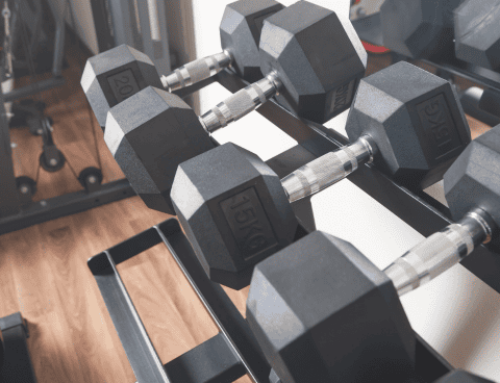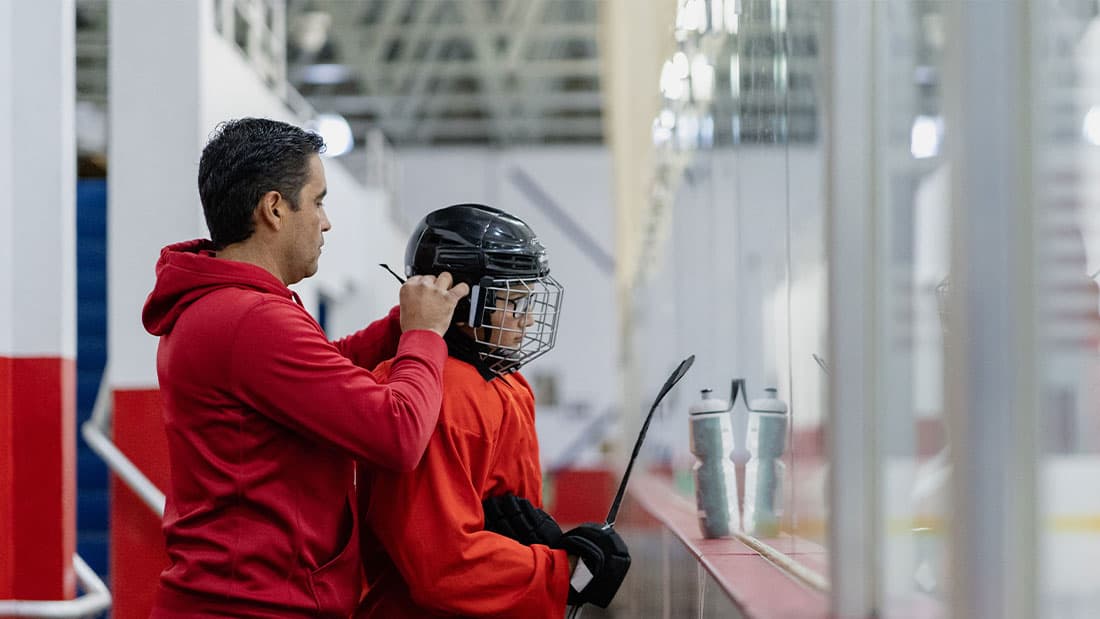4 Reasons Why You’re Not Getting Stronger
![]()
Getting stronger should always be a priority for athletes. Strength is the foundation of athleticism—there’s no denying that.
Getting strong is fairly simple. Use compound movements, lift heavy, fuel up and mitigate stress. Yet so many athletes struggle to make progress. They’re like a hamster in a wheel. They’re working hard but going nowhere.
RELATED: Get Stronger and Faster With This 5-Day Workout Routine
Here are four reasons why you’re not getting stronger.
1. You Keep Switching Gears
Most athletes have no concept of how long it takes to see progress. One month they’re trying to add size, and the next month they’re trying to get shredded. In short, they’re program hopping.
We can certainly make the argument that some training protocols are better than others. But that’s not the issue. Truth is, there are plenty of cookie-cutter programs out there, but you would make considerably more progress if you just follow one plan and finish it. Certainly there is value in changing up the stimulus, but doing so too often is not ideal.
The effectiveness of a training program pales in comparison to your ability to consistently put in the work. Focus on one primary goal.
RELATED: Why Random Workouts Won’t Produce the Results You Want
2. You Have No Regard For The Basics
There’s a reason why compound movements such as Squats, Deadlifts, Pull-Ups, Presses and Rows are staples in so many strength and conditioning programs. The basics always win.
The widespread belief that you need to constantly change up your training is asinine. Too many athletes think that in order to be strong, they have to add variety. Yet it all boils down to adhering to the basics.
I am not saying you should take apart your whole program, but in terms of the hierarchy of importance, you should prioritize the main movements. If you think for one second that you’d be better off without them, you’re completely delusional. Get bigger, stronger, faster, and leaner by sticking to the big lifts—Squat, Deadlift, Bench Press, Loaded Carry—before you think about doing an arm and calves day.
RELATED: Want to Build Muscle? Stick to the Basics
3. You’re Running On Fumes
You have to be cognizant that not every training session is about lifting as much weight as you can. It’s about applying an appropriate amount of load that will stimulate your body to grow. Also, just because you hit a roadblock doesn’t mean you should push harder.
Doing too much too soon can have an adverse effect on your progress. In addition to the technical proficiency of your lifts, your performance on the field will start to decline. Knowing when to give and when to take with respect to your training is the key to longevity. Training to failure or to the point of exhaustion is not an indication of a baller workout. Remember: stimulation, not annihilation. Get in, then get out.
RELATED: Are You Working Out Too Much?
4. You’re Not Recovering Adequately
I admire and appreciate people who train hard, but I’ve got news for you—you’re not invincible. Going all-out is the equivalent of digging a deep hole. Good luck trying to climb out. There is no point in being strong if you’re always feeling lackluster. If you want to continually get stronger, optimizing recovery is a must. Reason being is simply because fatigue masks fitness. That holds true because the best athletes are those who manage fatigue properly. They’ve become such advocates for themselves that they know when to back off and shift their focus to other areas. Listen to your body.
[cf]skyword_tracking_tag[/cf]RECOMMENDED FOR YOU
MOST POPULAR
4 Reasons Why You’re Not Getting Stronger
![]()
Getting stronger should always be a priority for athletes. Strength is the foundation of athleticism—there’s no denying that.
Getting strong is fairly simple. Use compound movements, lift heavy, fuel up and mitigate stress. Yet so many athletes struggle to make progress. They’re like a hamster in a wheel. They’re working hard but going nowhere.
RELATED: Get Stronger and Faster With This 5-Day Workout Routine
Here are four reasons why you’re not getting stronger.
1. You Keep Switching Gears
Most athletes have no concept of how long it takes to see progress. One month they’re trying to add size, and the next month they’re trying to get shredded. In short, they’re program hopping.
We can certainly make the argument that some training protocols are better than others. But that’s not the issue. Truth is, there are plenty of cookie-cutter programs out there, but you would make considerably more progress if you just follow one plan and finish it. Certainly there is value in changing up the stimulus, but doing so too often is not ideal.
The effectiveness of a training program pales in comparison to your ability to consistently put in the work. Focus on one primary goal.
RELATED: Why Random Workouts Won’t Produce the Results You Want
2. You Have No Regard For The Basics
There’s a reason why compound movements such as Squats, Deadlifts, Pull-Ups, Presses and Rows are staples in so many strength and conditioning programs. The basics always win.
The widespread belief that you need to constantly change up your training is asinine. Too many athletes think that in order to be strong, they have to add variety. Yet it all boils down to adhering to the basics.
I am not saying you should take apart your whole program, but in terms of the hierarchy of importance, you should prioritize the main movements. If you think for one second that you’d be better off without them, you’re completely delusional. Get bigger, stronger, faster, and leaner by sticking to the big lifts—Squat, Deadlift, Bench Press, Loaded Carry—before you think about doing an arm and calves day.
RELATED: Want to Build Muscle? Stick to the Basics
3. You’re Running On Fumes
You have to be cognizant that not every training session is about lifting as much weight as you can. It’s about applying an appropriate amount of load that will stimulate your body to grow. Also, just because you hit a roadblock doesn’t mean you should push harder.
Doing too much too soon can have an adverse effect on your progress. In addition to the technical proficiency of your lifts, your performance on the field will start to decline. Knowing when to give and when to take with respect to your training is the key to longevity. Training to failure or to the point of exhaustion is not an indication of a baller workout. Remember: stimulation, not annihilation. Get in, then get out.
RELATED: Are You Working Out Too Much?
4. You’re Not Recovering Adequately
I admire and appreciate people who train hard, but I’ve got news for you—you’re not invincible. Going all-out is the equivalent of digging a deep hole. Good luck trying to climb out. There is no point in being strong if you’re always feeling lackluster. If you want to continually get stronger, optimizing recovery is a must. Reason being is simply because fatigue masks fitness. That holds true because the best athletes are those who manage fatigue properly. They’ve become such advocates for themselves that they know when to back off and shift their focus to other areas. Listen to your body.
[cf]skyword_tracking_tag[/cf]









